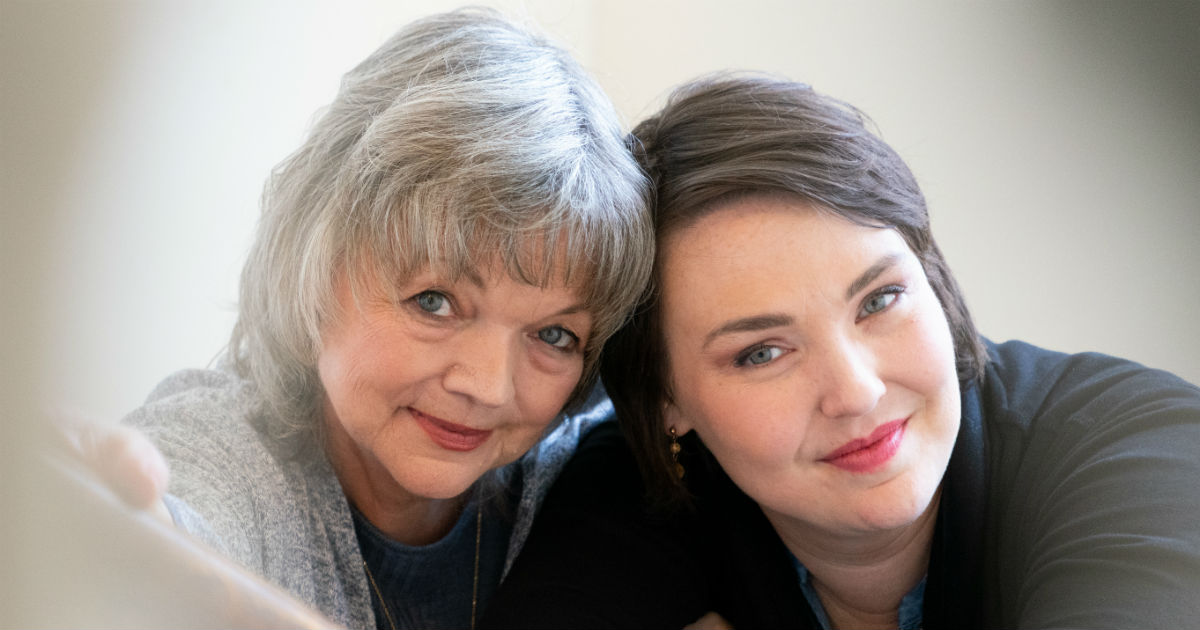
In 2015, after nearly 25 years as a registered nurse in the hospital of her Texas town, Jean R. thought she’d seen it all. Then, she received a diagnosis of her own: stage 3A human epidermal receptor 2 (HER2)-negative breast cancer. “I thought, well, this is a death sentence, because a lot of times, it is,” she recalled four years later.
With a family she adored, a rewarding career and a daughter, Briana, who would soon make her a grandmother, Jean had a lot of living yet to do, and she wasn’t about to let cancer interrupt it. During treatment, she lost her hair, her energy and a lot of weight, but gained a grandbaby, Abby, shortly after starting chemotherapy. But when Abby was about 18 months old, the family received another blow. Briana, then 32, also a registered nurse, was diagnosed with the same type of breast cancer as her mother. “I had just started my life and, ‘hey, you have cancer,’” Briana said.
When multiple generations of a family have breast cancer, it’s easy to assume it’s due to an inherited mutation such as the BRCA gene, says Sagun Shrestha, MD, Medical Director of Pharmacy and Therapeutics and Program Director of Medical Oncology Fellowship at our hospital in Tulsa. But that’s hardly the case, and it wasn’t true in Jean and Briana’s situation, either. “Both of them were BRCA negative and negative for any other known breast cancer mutations,” Dr. Shrestha said. “Fewer than 5 percent of people have a genetically underlying mutation.”
BRCA1 and BRCA2 (breast cancer genes 1 and 2) are perhaps the most commonly known genes associated with breast cancer. Everyone has these genes, but women born with mutations in one or both have an increased risk of developing breast and other cancers, including ovarian cancer. Men with mutated BCRA genes have an increased risk of prostate and breast cancer.
Cancer is the result of abnormal changes, known as mutations, to cells in the body. In some cases, these abnormal cells may be passed from one generation to the next. Inherited mutations account for a very small percentage of cancer diagnoses, according to the American Cancer Society. The majority of cancers are classified as acquired mutations, meaning abnormal changes to the cells occurred after birth.
What caused Briana and Jean’s cancers? Doctors never did find a definitive cause. According to Dr. Shrestha, there are a multitude of reasons people get breast cancer, many known and many yet to be determined.
In the United States, according to Dr. Shrestha, non-Hispanic, white women have the highest risk when compared to other demographics. Triple-negative breast cancer, which is aggressive and has a poorer prognosis than some other breast cancer types, is more common in black women.
Postmenopausal women who have used hormone replacement therapy are also at risk, Dr. Shrestha says. She cautions that estrogen creams may also increase risk since they are absorbed into the system, though the absorption level is lower than if the drug was ingested orally. Still, she advises women to avoid hormone therapy altogether, if possible, particularly those with a genetic predisposition.
“You see natural clinics advertising that testosterone and androgen will improve a woman’s sex life, and it may actually increase her chances of breast cancer,” says Dr. Shrestha.
Lifestyle choices, such as diet and smoking, may impact a woman’s risk of developing breast cancer. Past exposure to radiation, including radiation therapy from a previous cancer, may also increase risk. Dr. Shrestha says it’s helpful to know your family history since ovarian cancer, for example, is often linked to breast cancer.
